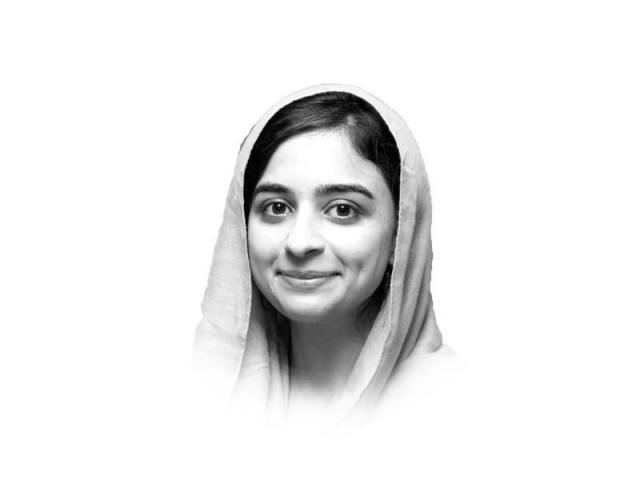Political economy of informal markets
The phrase ‘times have changed’ seems insufficient to capture the transformations that the market has undergone

One of the distinct memories I have with my nano (grandmother) is of going to Itwaar Bazaar (Sunday Market), now rebranded as the Margalla Bazaar. Gone are the days when the mere mention of landa elicited disdain.
The market offers a wide range of goods, both new and second-hand. From fresh paneer, pickles and crockery to toys, clothes, art supplies and pottery, the options are endless. It is meticulously systemised, with different sections dedicated to various items such as homeware, accessories, poultry, fruits and vegetables. The bazaar is also known for its abundance of vintage treasures and antique furniture and provides a platform for local artisans and craftsmen and women to showcase their handmade goods such as ceramics, textiles and jewelry. The assortment of goods (including the diverse range of street food) available in the market evolves with each passing season.
Amidst its old-world appeal, the bazaar has managed to embrace modernity, making every visit a captivating experience. Many foreigners visit the bazaar, highlighting their appreciation for the significance of this cultural hub. Regrettably, many locals often dismiss it, failing to recognise its value.
The Sunday Bazaar started as the Sector H-9 weekly bazaar in 1980 and was rebuilt in 2006. It now spans 25 acres of land with 2,760 stalls, operating on Tuesdays, Fridays and Sundays. Following fire outbreaks in 2018, 2019 and 2022, a dedicated fire truck now stands stationed in the market, ensuring safety for all. Upon entering the bazaar, eager children in wheelbarrows approach, ready to assist with carrying purchases, while security personnel diligently guard all the entrances of the market. For those relying on public transport, the Islamabad Metrobus provides convenient access to the market.
Over the years, informal markets such as this bazaar have gained attention from political economists due to their impact on poverty alleviation and the role of informal institutions within them. Recognising the importance of an enabling environment, the government should adopt policies that improve access to credit, provide legal recognition and protection and integrate informal businesses into the formal economy.
Examining the bazaar through the lens of political economists like Amartya Sen and Jeffrey Sachs provides insights into its role in social and economic inclusion. Sen’s approach reminds us to evaluate the impact on individuals’ well-being and freedom of choice, while Sachs emphasises targeted interventions and investments in poverty reduction and economic development. Understanding how the bazaar provides opportunities for marginalised communities can lead to proposals for targeted support, such as access to credit, vocational training and infrastructure improvements.
The bazaar remains a vibrant centre of commerce, embodying the spirit of entrepreneurship amidst changing economic landscapes. It accommodates a diverse range of traders, from small vendors to local craftspeople, creating economic opportunities for individuals from various backgrounds and exemplifies inclusivity by fostering social cohesion and promoting economic well-being at the grassroots level.
These markets provide livelihood opportunities, particularly for marginalised and low-income segments of the population. By promoting their growth, the Pakistan government can absorb surplus labour, reduce poverty and improve income distribution. Informal markets are deeply embedded in social networks and informal institutions which provide social support and regulate economic activities.
Recognising the role of informal markets is essential for formulating policies that promote inclusive economic growth and social well-being. To facilitate the growth of existing traders, measures should be taken to provide business development support, establish partnerships with financial institutions, offer market intelligence, create networking opportunities and improve market infrastructure.
The phrase ‘times have changed’ seems insufficient to capture the transformations that the market has undergone and though there is a timeless and nostalgic charm to the bazaar, evoking a sense of antiquity and tradition.
Published in The Express Tribune, June 10th, 2023.
Like Opinion & Editorial on Facebook, follow @ETOpEd on Twitter to receive all updates on all our daily pieces.
















COMMENTS
Comments are moderated and generally will be posted if they are on-topic and not abusive.
For more information, please see our Comments FAQ